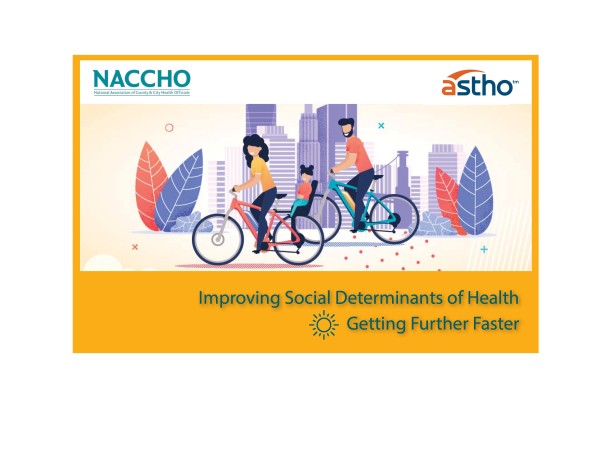Please note: The deadline for this proposal has been extended to February 20, 2023, 11:59pm PST
Building upon the results of Years 1 and 2 of the Centers for Disease Control and Prevention’s Improving Social Determinants of Health (SDOH) – Getting Further Faster (GFF) initiative, the purpose of this funding opportunity is to build evidence for how public health, healthcare and human services systems can implement, evaluate, and sustain programs to promote cross-sector linkages that address the social determinants of health (SDOH).
Year 3 of the project will focus on partnerships that include State and/or Local Health Departments (S/LHDs), Non-Profit Health Systems, and/or Human Services Organizations, with the overall goal of identifying best practices and sustainable models for use of community philanthropic and community benefit resources towards prevention and SDOH. The partnership may also include an optional Human Services organization partner, if applicable. The overall goal is to identify best practices and sustainable models for use of community philanthropic and community benefit resources towards prevention and SDOH.
Selected grant recipients will engage in a retrospective evaluation focusing on identifying the infrastructure needed to support collaboration between local/state health departments, and healthcare systems and/or human service agencies engaged in SDOH work. Included in this analysis will be conducting a cost-analysis, identifying the role and opportunities of S/LHDs to support SDOH efforts, and identifying outcomes and longer-term impacts associated with SDOH initiatives led by public health, healthcare/human services partnerships. Funded partnerships will have a history of advancing health equity and improving chronic disease conditions by addressing SDOH in one or more of the following domains:
- Built Environment: adoption of a Complete Streets policy, addressing inaccessible or nonexistent sidewalks, the addition of bike lanes or walking paths, or improving public transportation options.
- Community-Clinical Linkages: coordinating the exchange of information and altering activities among the local health department, community-based organization and safety net clinic to manage high blood pressure, and type 2 diabetes among low-income residents in a specific geographic location.
- Nutrition Security: implementing programs that lead to food policy changes such as: expanding SNAP benefits at local farmers markets, opening a grocery store in an underserved area, expanding farmers markets to underserved areas, to encourage both the availability and accessibility of fresh fruits and vegetables, or addressing food deserts through a coordinated community plan.
- Social Connectedness: providing routine and ongoing social support to populations that creates peer relationships among community members and neighborhood-based social programming to engage residents, including youth, in coordination with faith-based, clinical, and community-based organizations, or implementing strategies to ensure older adults remain connected to the community, for example.
Partnerships will participate in a robust series of retrospective evaluation activities designed to inform the development of promising practices for improving health outcomes and health equity by addressing the five SDOH domains. The retrospective evaluation will be led by RTI International who will coordinate evaluation activities with the grant recipients.
The RFP for this opportunity may be found here.
The informational webinar about this opportunity was on Thursday, January 5, 2023; the Q&A from this session may be found here.



